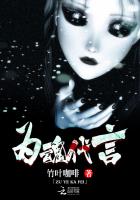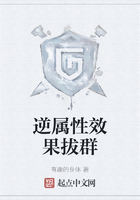WHETHER I shall turn out to be the hero of my own life, or whether that station will be held by anybody else, these pages must show. To begin my life with the beginning of my life, I record that I was born (as I have been informed and believe) on a Friday, at twelve o'clock at night. It was remarked that the clock began to strike, and I began to cry, simultaneously.
In consideration of the day and hour of my birth, it was declared by the nurse, and by some sage women in the neighbourhood who had taken a lively interest in me several months before there was any possibility of our becoming personally acquainted, first, that I was destined to be unlucky in life; and secondly, that I was privileged to see ghosts and spirits; both these gifts inevitably attaching, as they believed, to all unlucky infants of either gender, born towards the small hours on a Friday night.
I need say nothing here, on the first head, because nothing can show better than my history whether that prediction was verified or falsified by the result. On the second branch of the question, I will only remark, that unless I ran through that part of my inheritance while I was still a baby, I have not come into it yet. But I do not at all complain of having been kept out of this property; and if anybody else should be in the present enjoyment of it, he is heartily welcome to keep it.
I was born with a caul, which was advertised for sale, in the newspapers, at the low price of fifteen guineas. Whether sea-going people were short of money about that time, or were short of faith and preferred cork jackets, I don't know; all I know is, that there was but one solitary bidding, and that was from an attorney connected with the bill-broking business, who offered two pounds in cash, and the balance in sherry, but declined to be guaranteed from drowning on any higher bargain. Consequently the advertisement was withdrawn at a dead loss—for as to sherry, my poor dear mother's own sherry was in the market then—and ten years afterwards, the caul was put up in a raffle down in our part of the country, to fifty members at half-a-crown a head, the winner to spend five shillings. I was present myself, and I remember to have felt quite uncomfortable and confused, at a part of myself being disposed of in that way. The caul was won, I recollect, by an old lady with a hand-basket, who, very reluctantly, produced from it the stipulated five shillings, all in halfpence, and twopence halfpenny short—as it took an immense time and a great waste of arithmetic, to endeavour without any effect to prove to her. It is a fact which will be long remembered as remarkable down there, that she was never drowned, but died triumphantly in bed, at ninety-two. I have understood that it was, to the last, her proudest boast, that she never had been on the water in her life, except upon a bridge; and that over her tea (to which she was extremely partial) she, to the last, expressed her indignation at the impiety of mariners and others, who had the presumption to go'meandering'about the world. It was in vain to represent to her that some conveniences, tea perhaps included, resulted from this objectionable practice. She always returned, with greater emphasis and with an instinctive knowledge of the strength of her objection,'Let us have no meandering.'
Not to meander myself, at present, I will go back to my birth.
I was born at Blunderstone, in Suffolk, or'there by', as they say in Scotland. I was a posthumous child. My father's eyes had closed upon the light of this world six months, when mine opened on it. There is something strange to me, even now, in the reflection that he never saw me; and something stranger yet in the shadowy remembrance that I have of my first childish associations with his white grave-stone in the churchyard, and of the indefinable compassion I used to feel for it lying out alone there in the dark night, when our little parlour was warm and bright with fire and candle, and the doors of our house were—almost cruelly, it seemed to me sometimes—bolted and locked against it.
An aunt of my father's, and consequently a great-aunt of mine, of whom I shall have more to relate by and by, was the principal magnate of our family. Miss Trotwood, or Miss Betsey, as my poor mother always called her, when she sufficiently overcame her dread of this formidable personage to mention her at all (which was seldom), had been married to a husband younger than herself, who was very handsome, except in the sense of the homely adage,'handsome is, that handsome does'—for he was strongly suspected of having beaten Miss Betsey, and even of having once, on a disputed question of supplies, made some hasty but determined arrangements to throw her out of a two pair of stairs' window. These evidences of an incompatibility of temper induced Miss Betsey to pay him off, and effect a separation by mutual consent. He went to India with his capital, and there, according to a wild legend in our family, he was once seen riding on an elephant, in company with a Baboon; but I think it must have been a Baboo—or a Begum. Anyhow, from India tidings of his death reached home, within ten years. How they affected my aunt, nobody knew; for immediately upon the separation, she took her maiden name again, bought a cottage in a hamlet on the sea-coast a long way off, established herself there as a single woman with one servant, and was understood to live secluded, ever afterwards, in an inflexible retirement.
My father had once been a favourite of hers, I believe; but she was mortally affronted by his marriage, on the ground that my mother was'a wax doll'. She had never seen my mother, but she knew her to be not yet twenty. My father and Miss Betsey never met again. He was double my mother's age when he married, and of but a delicate constitution. He died a year afterwards, and, as I have said, six months before I came into the world.
This was the state of matters, on the afternoon of, what I may be excused for calling, that eventful and important Friday. I can make no claim therefore to have known, at that time, how matters stood; or to have any remembrance, founded on the evidence of my own senses, of what follows.
My mother was sitting by the fire, but poorly in health, and very low in spirits, looking at it through her tears, and desponding heavily about herself and the fatherless little stranger, who was already welcomed by some grosses of prophetic pins, in a drawer upstairs, to a world not at all excited on the subject of his arrival; my mother, I say, was sitting by the fire, that bright, windy March afternoon, very timid and sad, and very doubtful of ever coming alive out of the trial that was before her, when, lifting her eyes as she dried them, to the window opposite, she saw a strange lady coming up the garden.
My mother had a sure foreboding at the second glance, that it was Miss Betsey. The setting sun was glowing on the strange lady, over the garden-fence, and she came walking up to the door with a fell rigidity of figure and composure of countenance that could have belonged to nobody else.
When she reached the house, she gave another proof of her identity. My father had often hinted that she seldom conducted herself like any ordinary Christian; and now, instead of ringing the bell, she came and looked in at that identical window, pressing the end of her nose against the glass to that extent, that my poor dear mother used to say it became perfectly flat and white in a moment.
She gave my mother such a turn, that I have always been convinced I am indebted to Miss Betsey for having been born on a Friday.
My mother had left her chair in her agitation, and gone behind it in the corner. Miss Betsey, looking round the room, slowly and inquiringly, began on the other side, and carried her eyes on, like a Saracen's Head in a Dutch clock, until they reached my mother. Then she made a frown and a gesture to my mother, like one who was accustomed to be obeyed, to come and open the door. My mother went.
'Mrs. David Copperfield, I think,'said Miss Betsey; the emphasis referring, perhaps, to my mother's mourning weeds, and her condition.
'Yes,'said my mother, faintly.
'Miss Trotwood,'said the visitor.'You have heard of her, I dare say?'
My mother answered she had had that pleasure. And she had a disagreeable consciousness of not appearing to imply that it had been an overpowering pleasure.
'Now you see her,'said Miss Betsey. My mother bent her head, and begged her to walk in.
They went into the parlour my mother had come from, the fire in the best room on the other side of the passage not being lighted—not having been lighted, indeed, since my father's funeral; and when they were both seated, and Miss Betsey said nothing, my mother, after vainly trying to restrain herself, began to cry.'Oh tut, tut, tut!'said Miss Betsey, in a hurry.'Don't do that! Come, come!'
My mother couldn't help it notwithstanding, so she cried until she had had her cry out.
'Take off your cap, child,'said Miss Betsey,'and let me see you.'
My mother was too much afraid of her to refuse compliance with this odd request, if she had any disposition to do so. Therefore she did as she was told, and did it with such nervous hands that her hair (which was luxuriant and beautiful) fell all about her face.
'Why, bless my heart!'exclaimed Miss Betsey.'You are a very Baby!'
My mother was, no doubt, unusually youthful in appearance even for her years; she hung her head, as if it were her fault, poor thing, and said, sobbing, that indeed she was afraid she was but a childish widow, and would be but a childish mother if she lived. In a short pause which ensued, she had a fancy that she felt Miss Betsey touch her hair, and that with no ungentle hand; but, looking at her, in her timid hope, she found that lady sitting with the skirt of her dress tucked up, her hands folded on one knee, and her feet upon the fender, frowning at the fire.
'In the name of Heaven,'said Miss Betsey, suddenly,'why Rookery?'
'Do you mean the house, ma'am?'asked my mother.
'Why Rookery?'said Miss Betsey.'Cookery would have been more to the purpose, if you had had any practical ideas of life, either of you.'
'The name was Mr. Copperfield's choice,'returned my mother.'When he bought the house, he liked to think that there were rooks about it.'
The evening wind made such a disturbance just now, among some tall old elm-trees at the bottom of the garden, that neither my mother nor Miss Betsey could forbear glancing that way. As the elms bent to one another, like giants who were whispering secrets, and after a few seconds of such repose, fell into a violent flurry, tossing their wild arms about, as if their late confidences were really too wicked for their peace of mind, some weatherbeaten ragged old rooks'-nests, burdening their higher branches, swung like wrecks upon a stormy sea.
'Where are the birds?'asked Miss Betsey.
'The—?'My mother had been thinking of something else.
'The rooks—what has become of them?'asked Miss Betsey.
'There have not been any since we have lived here,'said my mother.'We thought—Mr. Copperfield thought—it was quite a large rookery; but the nests were very old ones, and the birds have deserted them a long while.'
'David Copperfield all over!'cried Miss Betsey.'David Copperfield from head to foot! Calls a house a rookery when there's not a rook near it, and takes the birds on trust, because he sees the nests!'
'Mr. Copperfield,'returned my mother,'is dead, and if you dare to speak unkindly of him to me—'
My poor dear mother, I suppose, had some momentary intention of committing an assault and battery upon my aunt, who could easily have settled her with one hand, even if my mother had been in far better training for such an encounter than she was that evening. But it passed with the action of rising from her chair; and she sat down again very meekly, and fainted.
When she came to herself, or when Miss Betsey had restored her, whichever it was, she found the latter standing at the window. The twilight was by this time shading down into darkness; and dimly as they saw each other, they could not have done that without the aid of the fire.
'Well?'said Miss Betsey, coming back to her chair, as if she had only been taking a casual look at the prospect;'and when do you expect—'
'I am all in a tremble,'faltered my mother.'I don't know what's the matter. I shall die, I am sure!'
'No, no, no,'said Miss Betsey.'Have some tea.'
'Oh dear me, dear me, do you think it will do me any good?'cried my mother in a helpless manner.
'Of course it will,'said Miss Betsey.'It's nothing but fancy. What do you call your girl?'
'I don't know that it will be a girl, yet, ma'am,'said my mother innocently.
'Bless the Baby!'exclaimed Miss Betsey, unconsciously quoting the second sentiment of the pincushion in the drawer upstairs, but applying it to my mother instead of me,'I don't mean that. I mean your servant-girl.'
'Peggotty,'said my mother.
'Peggotty!'repeated Miss Betsey, with some indignation.'Do you mean to say, child, that any human being has gone into a Christian church, and got herself named Peggotty?''It's her surname,'said my mother, faintly.'Mr. Copperfield called her by it, because her Christian name was the same as mine.'
'Here! Peggotty!'cried Miss Betsey, opening the parlour door.'Tea. Your mistress is a little unwell. Don't dawdle.'
Having issued this mandate with as much potentiality as if she had been a recognized authority in the house ever since it had been a house, and having looked out to confront the amazed Peggotty coming along the passage with a candle at the sound of a strange voice, Miss Betsey shut the door again, and sat down as before: with her feet on the fender, the skirt of her dress tucked up, and her hands folded on one knee.
'You were speaking about its being a girl,'said Miss Betsey.'I have no doubt it will be a girl. I have a presentiment that it must be a girl. Now child, from the moment of the birth of this girl—'
'Perhaps boy,'my mother took the liberty of putting in.
'I tell you I have a presentiment that it must be a girl,'returned Miss Betsey.'Don't contradict. From the moment of this girl's birth, child, I intend to be her friend. I intend to be her godmother, and I beg you'll call her Betsey Trotwood Copperfield. There must be no mistakes in life with THIS Betsey Trotwood. There must be no trifling with HER affections, poor dear. She must be well brought up, and well guarded from reposing any foolish confidences where they are not deserved. I must make that MY care.'
There was a twitch of Miss Betsey's head, after each of these sentences, as if her own old wrongs were working within her, and she repressed any plainer reference to them by strong constraint. So my mother suspected, at least, as she observed her by the low glimmer of the fire: too much scared by Miss Betsey, too uneasy in herself, and too subdued and bewildered altogether, to observe anything very clearly, or to know what to say.
'And was David good to you, child?'asked Miss Betsey, when she had been silent for a little while, and these motions of her head had gradually ceased.'Were you comfortable together?'
'We were very happy,'said my mother.'Mr. Copperfield was only too good to me.'
'What, he spoilt you, I suppose?'returned Miss Betsey.
'For being quite alone and dependent on myself in this rough world again, yes, I fear he did indeed,'sobbed my mother.
'Well! Don't cry!'said Miss Betsey.'You were not equally matched, child—if any two people can be equally matched—and so I asked the question. You were an orphan, weren't you?'
'Yes.'
'And a governess?'
'I was nursery-governess in a family where Mr. Copperfield came to visit. Mr. Copperfield was very kind to me, and took a great deal of notice of me, and paid me a good deal of attention, and at last proposed to me. And I accepted him. And so we were married,'said my mother simply.
'Ha! Poor Baby!'mused Miss Betsey, with her frown still bent upon the fire.'Do you know anything?'
'I beg your pardon, ma'am,'faltered my mother.
'About keeping house, for instance,'said Miss Betsey.
'Not much, I fear,'returned my mother.'Not so much as I could wish. But Mr. Copperfield was teaching me—'
('Much he knew about it himself!') said Miss Betsey in a parenthesis. —'And I hope I should have improved, being very anxious to learn, and he very patient to teach me, if the great misfortune of his death'—my mother broke down again here, and could get no farther.
'Well, well!'said Miss Betsey. —'I kept my housekeeping-book regularly, and balanced it with Mr. Copperfield every night,'cried my mother in another burst of distress, and breaking down again.
'Well, well!'said Miss Betsey.'Don't cry any more.'—'And I am sure we never had a word of difference respecting it, except when Mr. Copperfield objected to my threes and fives being too much like each other, or to my putting curly tails to my sevens and nines,'resumed my mother in another burst, and breaking down again.
'You'll make yourself ill,'said Miss Betsey,'and you know that will not be good either for you or for my god-daughter. Come! You mustn't do it!'
This argument had some share in quieting my mother, though her increasing indisposition had a larger one. There was an interval of silence, only broken by Miss Betsey's occasionally ejaculating'Ha!'as she sat with her feet upon the fender.
'David had bought an annuity for himself with his money, I know,'said she, by and by.'What did he do for you?'
'Mr. Copperfield,'said my mother, answering with some difficulty,'was so considerate and good as to secure the reversion of a part of it to me.'
'How much?'asked Miss Betsey.
'A hundred and five pounds a year,'said my mother.
'He might have done worse,'said my aunt.
The word was appropriate to the moment. My mother was so much worse that Peggotty, coming in with the teaboard and candles, and seeing at a glance how ill she was,—as Miss Betsey might have done sooner if there had been light enough,—conveyed her upstairs to her own room with all speed; and immediately dispatched Ham Peggotty, her nephew, who had been for some days past secreted in the house, unknown to my mother, as a special messenger in case of emergency, to fetch the nurse and doctor.
Those allied powers were considerably astonished, when they arrived within a few minutes of each other, to find an unknown lady of portentous appearance, sitting before the fire, with her bonnet tied over her left arm, stopping her ears with jewellers' cotton. Peggotty knowing nothing about her, and my mother saying nothing about her, she was quite a mystery in the parlour; and the fact of her having a magazine of jewellers' cotton in her pocket, and sticking the article in her ears in that way, did not detract from the solemnity of her presence.
The doctor having been upstairs and come down again, and having satisfied himself, I suppose, that there was a probability of this unknown lady and himself having to sit there, face to face, for some hours, laid himself out to be polite and social. He was the meekest of his sex, the mildest of little men. He sidled in and out of a room, to take up the less space. He walked as softly as the Ghost in Hamlet, and more slowly. He carried his head on one side, partly in modest depreciation of himself, partly in modest propitiation of everybody else. It is nothing to say that he hadn't a word to throw at a dog. He couldn't have thrown a word at a mad dog. He might have offered him one gently, or half a one, or a fragment of one; for he spoke as slowly as he walked; but he wouldn't have been rude to him, and he couldn't have been quick with him, for any earthly consideration.
Mr. Chillip, looking mildly at my aunt with his head on one side, and making her a little bow, said, in allusion to the jewellers' cotton, as he softly touched his left ear:
'Some local irritation, ma'am?'
'What!'replied my aunt, pulling the cotton out of one ear like a cork.
Mr. Chillip was so alarmed by her abruptness—as he told my mother afterwards—that it was a mercy he didn't lose his presence of mind. But he repeated sweetly:
'Some local irritation, ma'am?'
'Nonsense!'replied my aunt, and corked herself again, at one blow.
Mr. Chillip could do nothing after this, but sit and look at her feebly, as she sat and looked at the fire, until he was called upstairs again. After some quarter of an hour's absence, he returned.
'Well?'said my aunt, taking the cotton out of the ear nearest to him.
'Well, ma'am,'returned Mr. Chillip,'we are—we are progressing slowly, ma'am.'
'Ba—a—ah!'said my aunt, with a perfect shake on the contemptuous interjection. And corked herself as before.
Really—really—as Mr. Chillip told my mother, he was almost shocked; speaking in a professional point of view alone, he was almost shocked. But he sat and looked at her, notwithstanding, for nearly two hours, as she sat looking at the fire, until he was again called out. After another absence, he again returned.
'Well?'said my aunt, taking out the cotton on that side again.
'Well, ma'am,'returned Mr. Chillip,'we are—we are progressing slowly, ma'am.'
'Ya—a—ah!'said my aunt. With such a snarl at him, that Mr. Chillip absolutely could not bear it. It was really calculated to break his spirit, he said afterwards. He preferred to go and sit upon the stairs, in the dark and a strong draught, until he was again sent for.
Ham Peggotty, who went to the national school, and was a very dragon at his catechism, and who may therefore be regarded as a credible witness, reported next day, that happening to peep in at the parlour-door an hour after this, he was instantly descried by Miss Betsey, then walking to and fro in a state of agitation, and pounced upon before he could make his escape. That there were now occasional sounds of feet and voices overhead which he inferred the cotton did not exclude, from the circumstance of his evidently being clutched by the lady as a victim on whom to expend her superabundant agitation when the sounds were loudest. That, marching him constantly up and down by the collar (as if he had been taking too much laudanum), she, at those times, shook him, rumpled his hair, made light of his linen, stopped his ears as if she confounded them with her own, and otherwise tousled and maltreated him. This was in part confirmed by his aunt, who saw him at half past twelve o'clock, soon after his release, and affirmed that he was then as red as I was.
The mild Mr. Chillip could not possibly bear malice at such a time, if at any time. He sidled into the parlour as soon as he was at liberty, and said to my aunt in his meekest manner:
'Well, ma'am, I am happy to congratulate you.'
'What upon?'said my aunt, sharply.
Mr. Chillip was fluttered again, by the extreme severity of my aunt's manner; so he made her a little bow and gave her a little smile, to mollify her.
'Mercy on the man, what's he doing!'cried my aunt, impatiently.'Can't he speak?'
'Be calm, my dear ma'am,'said Mr. Chillip, in his softest accents.
'There is no longer any occasion for uneasiness, ma'am. Be calm.'
It has since been considered almost a miracle that my aunt didn't shake him, and shake what he had to say, out of him. She only shook her own head at him, but in a way that made him quail.
'Well, ma'am,'resumed Mr. Chillip, as soon as he had courage,'I am happy to congratulate you. All is now over, ma'am, and well over.'
During the five minutes or so that Mr. Chillip devoted to the delivery of this oration, my aunt eyed him narrowly.
'How is she?'said my aunt, folding her arms with her bonnet still tied on one of them.
'Well, ma'am, she will soon be quite comfortable, I hope,'returned Mr. Chillip.'Quite as comfortable as we can expect a young mother to be, under these melancholy domestic circumstances. There cannot be any objection to your seeing her presently, ma'am. It may do her good.'
'And SHE. How is SHE?'said my aunt, sharply.
Mr. Chillip laid his head a little more on one side, and looked at my aunt like an amiable bird.
'The baby,'said my aunt.'How is she?'
'Ma'am,'returned Mr. Chillip,'I apprehended you had known. It's a boy.'
My aunt said never a word, but took her bonnet by the strings, in the manner of a sling, aimed a blow at Mr. Chillip's head with it, put it on bent, walked out, and never came back. She vanished like a discontented fairy; or like one of those supernatural beings, whom it was popularly supposed I was entitled to see; and never came back any more.
No. I lay in my basket, and my mother lay in her bed; but Betsey Trotwood Copperfield was for ever in the land of dreams and shadows, the tremendous region whence I had so lately travelled; and the light upon the window of our room shone out upon the earthly bourne of all such travellers, and the mound above the ashes and the dust that once was he, without whom I had never been.














